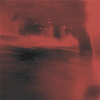 Former Slowdive drummer Simon Scott has been building up to releasing his debut solo album for quite some time and his meticulousness and deliberation were decidedly not in vain. Despite Scott's percussionist roots, Navigare is a glacial and often beatless dose of soft-focus sonic heroin that seamlessly integrates his shoegazer past with recent inspiration from ambient experimentalists like Fennesz and Tim Hecker.
Former Slowdive drummer Simon Scott has been building up to releasing his debut solo album for quite some time and his meticulousness and deliberation were decidedly not in vain. Despite Scott's percussionist roots, Navigare is a glacial and often beatless dose of soft-focus sonic heroin that seamlessly integrates his shoegazer past with recent inspiration from ambient experimentalists like Fennesz and Tim Hecker.
Since leaving Slowdive in the early ‘90s, Simon Scott has been a fairly busy fellow: he has founded a record label (Kesh Recordings), collaborated with folks like Machinefabriek and Jasper TX, and been a member of two other bands (Seavault and Televise). Nevertheless, he basically fell off my cultural radar and I almost slept on Navigare as a result, as I basically only remembered him as a guy who played drums very slowly (but well) in a band I liked more than a decade ago. Upon hearing this, however, it seems that either his talents were grossly underutilized in Slowdive or Simon has undergone a stunning creative evolution over the last decade and a half. Most likely, the truth lies somewhere between the two.
While it is certainly difficult to completely pin down Miasmah’s aesthetic, Navigare is nevertheless a bit of an aberration from the spectral neo-classicicism with which the label is generally associated. Scott is certainly akin to many of his label mates in cultivating a haunted and shadowy atmosphere, but is unique in both the considerable density of his work and the incorporation of heavier, more “rock” influences. The most successful and obvious example of the latter is “The ACC,” which artfully melds hazy shoegazer guitars with a bass-heavy dub influence and murky repeating loop that reminds me strongly of some of Scorn’s better work. “Flood Inn” also mines quite similar territory, but shifts the emphasis from the rhythm section to the crackling, amorphous haze that surrounds it.
Simon employs a wide arsenal of instrumentation on this album that includes sitars, flutes, and strings, but it is all so warped and heavily processed (in a good way) that it is quite difficult to identify them. Of course, when a recognizable sound does surface from the billowing fog of warmth and hiss, it can be quite striking (such as the melancholy cello loop that eventually emerges in “Under Crumbling Skies”). Much more obvious is his fascination with warped field recordings, ruined and degraded loops, and tape hiss (though Scott himself sees Navigare as a “guitar album” in the Kevin Shields/Christian Fennesz sense). The shimmering, roiling ambiance of “Spring Stars” makes an excellent case for his treated guitar prowess, but his wider masteries of mood, sound-shaping, and layering are what truly make the album memorable.
The overall tone of the album is decidedly one of enveloping, drugged warmth mingled with a ubiquitous lurking disquiet. One of the conscious objectives for Navigare was to seem simultaneously fluid and scorched, a daunting feat that was largely accomplished (though some individual tracks occasionally plunge too strongly into dissonance or bleakness to maintain the delicate balance). Despite those very narrow aesthetic confines, Scott has achieved an impressive degree of variety and emotional depth, making Navigare a very strong and self-assured first album.
Samples:
Read More

